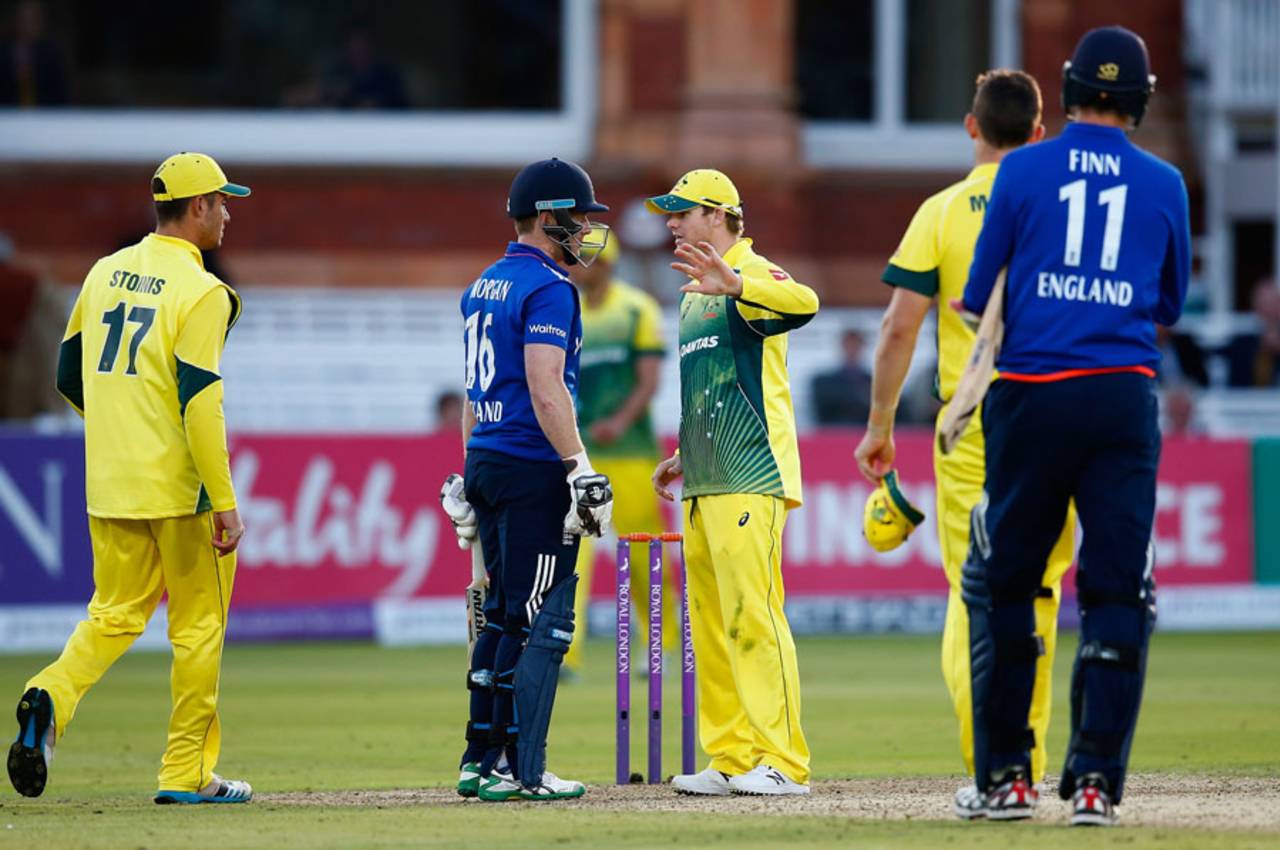Can one desire too much of a good thing? If the recent history of the England and Australian cricket teams is anything to go by, then yes, a thousand times - which is coincidentally the number of times England have played Australia in the last 20 years.
At least that's how it feels. Calling England-Australia too much of a good thing seems unnecessarily kind. Though England-Australia contests are able to call on unmatched levels of context, possibly only rivalled in that regard by India-Pakistan, the cricket itself has all too often sunk under the whelm.
By the end of the last Ashes, many cricket lovers were burnt out with Ashes fatigue. It's not just the Ashes: across all formats, the recent exploitation of the golden goose of England v Australia warrants the intervention of the RSPCA. For out of the last 20 calendar years,
only in 2008 did the two sides avoid meeting in any competition, whether Test series, ODI World Cup, one-off T20, or otherwise.
One can thank
Virat Kohli if 2016 goes the same way. With England and Australia placed in different groups for the World T20, the knockout stages provided the only chance that they might meet that year. It therefore came down to the virtual quarter-final between Australia and India - and Kohli's scintillating chase, arguably the innings of the tournament, secured India's progression to the semis, and, more significantly for the purposes of this piece, Australia's elimination. Those thoroughly sated by endless England-Australia contests could heave a long sigh of relief: the World T20 had been successfully navigated, and Australia and England would not meet in 2016.
Of course one should beware of speaking too soon. A couple of hastily arranged T20s, tagged on to the end of the summer with only a few weeks' notice, would not be
without precedent. Yet for the moment, those who hanker for diversity of opponents can breathe a little more easily.
Cricket is, if nothing else, a game of almost infinite variety at every level. Each delivery of a bowler is an individual (though Glenn McGrath would press for an honourable exception); no two strips of grass are identical; Dukes ball differs from Dukes ball in glory. Unfortunately the scheduling more often reflects commercial realities rather than the inherent heterogeneity of the game. If confirmation were needed, it is provided by the fact that a year with a tour of England by India now provides the most income, exceeding even an Ashes year.
All of which highlights the importance of the task ahead of Shashank Manohar: that of bringing about (uploading?) a sensible, binding FTP. At the very least, it should include a more satisfactory method of crowning a Test champion than the current rankings system, the authority of which is fatally undermined by the inconsistent number of matches each team plays.
Somehow a five-match England-Australia ODI series (plus a T20) has squirmed its way into the 2018 English season - presumably to bridge the impossibly long gap between the 2017-18 and 2019 Ashes series
Plenty of ideas have been knocked about. It cannot be too hard to find a solution preferable to the current status. Highlighting the absurdity of the situation is the fact that, should England secure series victories over both of their guests this year, they will hold every one of the bilateral series trophies. Yet they may still only wind up in third place on the rankings, below two teams they defeated in five-match series.
We can at least be thankful that there is relatively little intra-Big-Three cricket for the rest of the year - that is, until England head to India in November. In the meantime, the visits of Sri Lanka and Pakistan are a breath of fresh air, counteracting the soporific effect of apparently endless rematches. There are, after all, seven Full Members outside the Big Three who could be hosted - and let's not get started on the paltry number of fixtures England offer their geographically closest Associate members.
Not every team, naturally, is of the same calibre. Zimbabwe, who have played England in
only six of the 16 years since 2000, including 2002 and 2007, when they met via ICC tournaments, are the most obvious case in point. With the political situation as it has been, and Zimbabwe not so much propping up the bottom of the Test rankings as falling into the basement, it is understandable why the ECB has not tripped over itself to arrange bilateral series. Understandable but regrettable: even a desultory one-off Test would add some much-needed spice, not to mention the chance for hilarious English meltdown. Who wouldn't want to see a final-day Prosper Utseya 9 for 65 at The Oval?
Zimbabwe might be a step too far for the ECB, but Bangladesh shouldn't be. Yet, since 2000, England have only played Bangladesh in
one more calendar year than Zimbabwe. Considering their recent history in ICC competitions against England, being invited over for an ODI series would seem the minimum that could be expected. Yet the current FTP has no place for any tour of England by Bangladesh, whether Test, ODI, or T20. Somehow, though, a five-match England-Australia ODI series (plus a T20) has squirmed its way into the 2018 English season - presumably to bridge the impossibly long gap between the 2017-18 and 2019 Ashes series. No opportunity, it seems, to allow absence to let hearts grow fonder.
This year, therefore, is a time to be grateful for small mercies. Sri Lanka and Pakistan are back on English shores, and that's a Good Thing.
